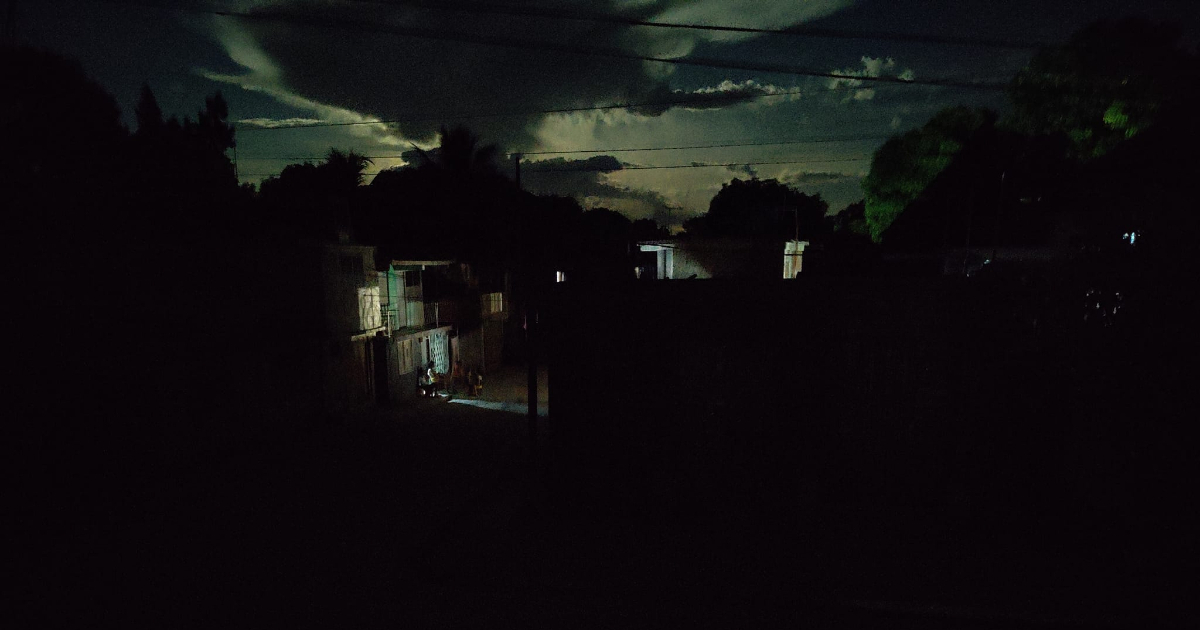
Related videos:
After several instances facing a deficit of about 1,000 MW, the energy situation in Cuba is worsening again, reaching a forecast deficit greater than this figure this Tuesday.
According to the Electric Union (UNE), the availability of the National Electric System (SEN) is 1,890 MW compared to an estimated demand of 2040 MW, which will result in outages of up to 550 MW during the day and 1,135 MW during peak hours.
The lack of generation is due to breakdowns in unit 5 of the Nuevitas Power Station and unit 2 of the Felton Power Station, in addition to maintenance at other plants such as Santa Cruz, Cienfuegos, and Renté.
According to UNE, the electricity service was interrupted this Monday from 9:06 a.m. to 10:15 p.m., with a maximum impact of 1028 MW at 6:30 p.m., coinciding with peak demand hours and exceeding the forecasted 960 MW.
The population, already accustomed to constant interruptions, now faces more intense and prolonged blackouts that complicate their daily activities, while discontent grows over the authorities' inability to ensure a stable electricity supply.
In last October, the SEN was restored and Cubans regained the "new normal" of the service provided by UNE, which entails a deficient supply that involves scheduled blackout times.
Recently, the Cuban regime announced that by April and June, the units of the Carlos Manuel de Céspedes thermoelectric plant in Cienfuegos, which suffered significant breakdowns last October, will not be repaired.
It had been years since both blocks were offline at the same time, something the government attributes to the failure of the SEN on October 18, which left the entire country in the dark.
Frequently Asked Questions about the Energy Crisis in Cuba
Why are there constant blackouts in Cuba?
The blackouts in Cuba are due to a significant deficit in electrical generation capacity, caused by malfunctions and maintenance issues in several thermoelectric units, as well as a critical fuel shortage affecting distributed generation plants.
What is the current electricity deficit in Cuba?
Currently, Cuba is facing an electricity deficit that exceeds 1,000 MW, exacerbating the energy situation and leading to prolonged and frequent blackouts during peak hours.
How are blackouts affecting the daily lives of Cubans?
Blackouts have a serious impact on the daily lives of Cubans, complicating essential activities such as cooking, using appliances, and maintaining the cold chain, in addition to increasing social discontent and frustration.
What measures is the Cuban government taking to resolve the energy crisis?
So far, the measures taken by the Cuban government have been insufficient to resolve the energy crisis. The government has not implemented effective long-term solutions, which keeps the population in a state of uncertainty and growing discontent.
Filed under: